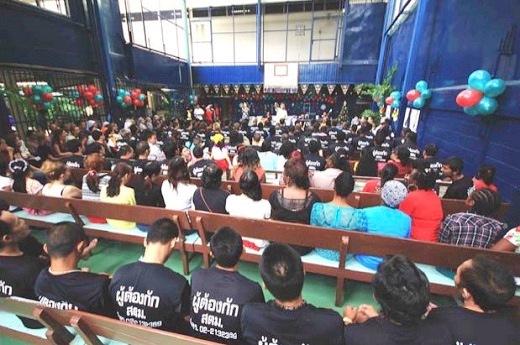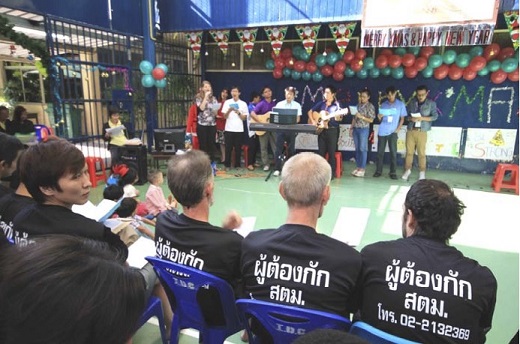
These detainees have, for the most part, entered Thailand illegally. How long they will be in the detention centre depends on many factors – the regulations of their country’s embassy/consulate, their travel documents, a plane ticket, and whether they are physically fit for the flight home.
They are a mixture of cultures, traditions and personalities. Some of these people want to get back home as quickly as possible; some are content to stay and rest; some have a Thai family outside; some want to stay in Thailand for as long as possible; and some refuse to go back to their country of origin. A few do not see any options at all: no family, no relatives, no home. They tell the police and visitors they will just die in detention.
And then there are refugees, who have fled their homes because of oppression, politics, war or religious persecution. These refugees must enter the long process of the United Nations High Commissioner for Refugees in order to be recognised by the United Nations (but not by Thailand) as true refugees and find a third country that will accept them as immigrants starting a new life.
Since Thailand has never ratified the UN charters on refugees, these people are considered to have entered Thailand illegally, or overstayed their visa. If they are caught, they must stay in IDC longer than others who pass through this centre.
The Jesuit Prison Ministry is one of the groups allowed to work inside IDC. They try to keep the families of the detainees together with some kind of contact or correspondence. They work together, cooperate with the officials, and try to bring a bit of joy and hope to these people in need.
When Christmas and the New Year come around, the immigration officials allow non-governmental organisations to organise a celebration inside the detention centre. This is a very special occasion for the detainees and also for the NGOs who are allowed to work inside IDC.

On December 17, Ms Wilaiwan Phokthavi, director of the Jesuit Prison Ministry, led all the NGOs and volunteer choir and musicians into the centre’s open exercise area where representatives from each of the large detainee cells – men, women, children – were gathered. The celebration began with a prayer, followed by Christmas and New Year songs, and then a mix of presentations (and many prayers) by each national or linguistic group.
After the group celebration, the officers led the detainees back to their cells and the NGOs and volunteers were allowed to go to each large cell and sing, bless, and distribute the parcels to everyone. The NGOs who work inside IDC are allowed to go to the large cells every day in the course of their work; but on this one occasion, the Christmas-New Year party, all the special visitors are able to visit the 13 cells one by one, to sing a song or two and then give the parcels to each detainee.
Such a simple party brings so much happiness to the detainees.






